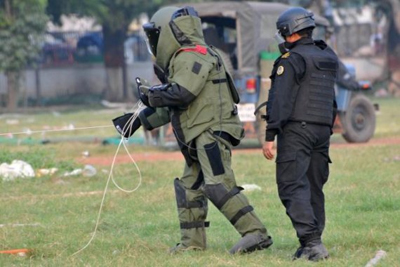Malda, Oct 18: More than two dozen crude bombs were discovered Friday at an orchard in West Bengal's Malda district, police said.
 The crude bombs, contained in a plastic bag, were found in a mango orchard in 16 Mile area under Kaliachak police station.
The crude bombs, contained in a plastic bag, were found in a mango orchard in 16 Mile area under Kaliachak police station.
"About 30 crude bombs have been found from the bag. A bomb disposal squad is diffusing them. We are also in the lookout for Mohshin Sheikh, the owner of the orchard," an officer of Kaliachak police station said.
The recovery in Malda comes a day after the National Investigation Agency (NIA) and the National Security Guard (NSG), probing the Oct 2 Burdwan blast, seized over 30 improvised explosive devices from a house in the district.
The NIA suspects the involvement of militant group Jamaat-ul-Mujahideen Bangladesh, in the Burdwan blast in which two suspected militants were killed and another injured.
Earlier Wednesday, two people were injured in a bomb explosion in Hatichapa village in Malda.
Several incidents of crude bombs going off or being seized by police have been reported from several districts of the state in the last few days.






Comments
Add new comment